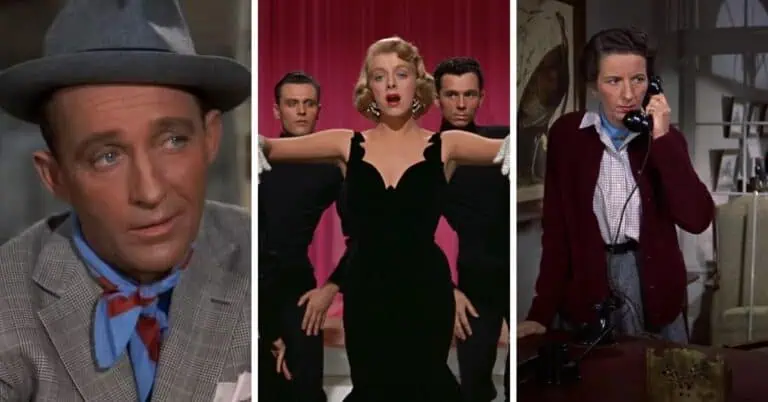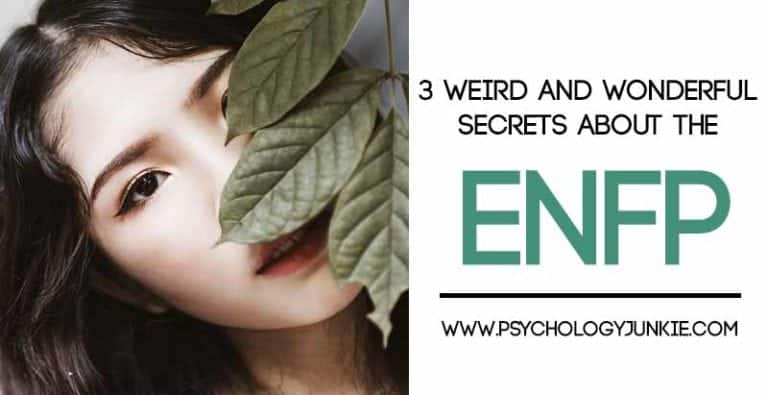What Is Introverted Sensing? 10 Signs That You Might Be an Introverted Sensor
Introverted sensing (or Si for short) is one of the most misunderstood cognitive functions in the personality community. Many people make assumptions about Si-users as being overly-traditional or rule-following to a fault. So today I want to talk about what it REALLY feels like to have introverted sensing in your function stack. Si is the dominant function of ISTJ and ISFJ personality types and the auxiliary function of ESTJ and ESFJ personality types. INPs use Si in the tertiary position and ENPs use Si in the inferior position and may suppress it. In my experience as an MBTI® practitioner, I’ve seen many Si-users mistype as Ni-users because of poorly worded tests. If you’re unsure about whether you use Si or Ni you can read this article and then read 10 Signs That You Might Be an Introverted Intuitive to see which function suits you better.
Not sure what your personality type is? Take our new personality questionnaire here. Or you can take the official MBTI® here.

What Is Introverted Sensing?
Introverted sensing is a perceiving (information-gathering) function. It focuses on the subjective, internal world of personal experience and compares and contrasts new experiences to past experiences and memories. Si-users tend to notice patterns repeating themselves and are quick to spot changes or inconsistencies in their environment. They trust personal experience and subjectively explore the impact of current events, choices, and consequences.
Joel Mark-Witt and Antonia Dodge, the founders of Personality Hacker, refer to Introverted Sensing as “Memory.” They say, “Memory users prefer to capture information for later review. What’s more reliable than both experiencing a situation and carefully ruminating on it, combing through memory for personal significance?”
Psychologist Linda Berens further explains, “The immediate experience or words are instantly linked with the prior experiences, and we register a similarity or difference – for example, noticing that some food doesn’t taste the same or is saltier than it usually is.”
Ultimately, Introverted Sensing perceives reality through a lens of past experiences. Thus it can quickly grasp the history of a situation, spot changes, and notice patterns. Because it is a Sensing function, it is focused on concrete reality rather than a bunch of abstract musings. There’s a down-to-earth quality to it and a tendency to stay grounded in fully lived experiences.

10 Signs That You Might Be an Introverted Sensing Personality Type
#1 – You Compare and Contrast A Lot
You easily notice inconsistencies and changes in the environment and with the people you care about. You can tell when a current experience doesn’t line up with what you know from the past. You can tell when someone’s behavior and attitude is changing. You notice how new things are similar or different from things you’ve experienced before. You think about the impact of changes a lot.
#2 – You Enjoy Recalling and Reliving Favorite Past Experiences
When you remember a favorite experience in your past, you can instantly recall how you felt then, and many of the significant details of that experience. You like having photos to look at and home videos to remind you of just how special that experience was to you, but you know they can never amount to the stored images you have in your mind. You enjoy reminiscing and have a certain sense of nostalgia.
#3 – You Like Having a Routine and Structure To Your Day
Knowing what to expect and having a familiar routine and schedule makes you feel relaxed and at ease in your life. Sometimes this can mean that you enjoy having your coffee at a certain time, or it could mean that you do your shopping on a certain day at a certain place. Every SJ that I know has very specific routines for how they go about their life, and they don’t like having those routines disrupted!
#4 – You Learn Quickly From Your Mistakes
You rarely repeat the same mistakes because you learn a lot through personal experience and make a mental note not to repeat the same pattern again.
#5 – You Remember Significant People and Moments in Vivid Detail
You might remember what clothes you wore on your 5th birthday or the smell of autumn in the air. You probably can remember the favorite perfumes of your best friends or every detail about your first computer. You don’t remember the details of everything perfectly, but certainly the things that were personally significant to you.
#6 – You Quickly Notice When Something Is Out Of Place
If you go into a building or room you can usually tell pretty quickly if something has changed or been re-arranged. You notice improvements and upgrades very quickly.
#7 – You Like to Do Things In a Systematic Order
You like sequential instructions and going from A to B to C and thoroughly ensuring a project is done well. You are very painstaking and careful in your work.
#8 – You Trust Facts Over Inspiration
You like clear, concise facts and are skeptical of abstract, unproven methods and ideas. You are very practical and people tend to call you down-to-earth. You enjoy using tried-and-true methods in your work.
#9 – You Want Your Conversation to Have a Real-World Application
You can enjoy discussing philosophies and theoretical possibilities, but eventually you want to discuss things that really apply to your life now. You like having a plan and planning. You like making a tangible difference in the world around you and if a conversation doesn’t have a practical purpose you can get bored or restless. You’d rather talk about projects, activities, and goals than inspirations and theories.
#10 – You Have A Good Sense of Humor – But You Don’t Always Share It
On the outside you can seem serious, but on the inside you enjoy noticing a lot of details and relationships and impressions that other people don’t. You see the humor in a lot of everyday experiences that pass other people by. While you might seem more serious and reserved at first, people who know you closely know that you can be surprisingly witty, in an offbeat, unpredictable, and even irreverent way at times!
What Are Your Thoughts?
Do you relate to these signs of introverted sensing? What is your experience? Share your thoughts with us in the comments! We’d love to hear from you. You can find out even more about your personality type in our eBook, Discovering You: Unlocking the Power of Personality Type.
Other Articles You Might Enjoy:
10 Signs That You Might Use Extraverted Thinking
The Timeless Power of Introverted Sensing
References:
Building Blocks of Personality Type by Leona Haas and Mark Hunziker (Eltanin Publishing, 2006)
Personality Hacker: Harness the power of your personality type to transform your work, relationships and life by Joel Mark Witt and Antonia Dodge (Ulysses Press, 2018)
Understanding Yourself and Others®: An Introduction to the Personality Type Code by Linda V. Berens and Dario Nardi (Radiance House, 2004)














Spot On! Couldn’t be more accurate
You know this applies to me since I laughed when I read number 10 🙂 —ISTJ
Right on the money
I enjoyed this article very much.
I enjoy reading about other personality’s and their functions. It’s very strange because i relate to most of these and I’m 95% sure i am ESTP.
Overall, your blog is spot on. #4 is the Te and #6 could be Se, though. (I’m ENTJ but worked in the insurance industry with many SJs for years.)
I thoroughly enjoyed reading this! I’m an ESFJ & after a couple years of a lot of reading & genuine desire to learn about the different personality types, this was spot on.
Nailed it! I’m an ESTJ and never really understood exactly what Si meant. A lot of these tendencies I attributed to my Te. Thanks for the info!
I think I am an ISJ…Born a Cancer